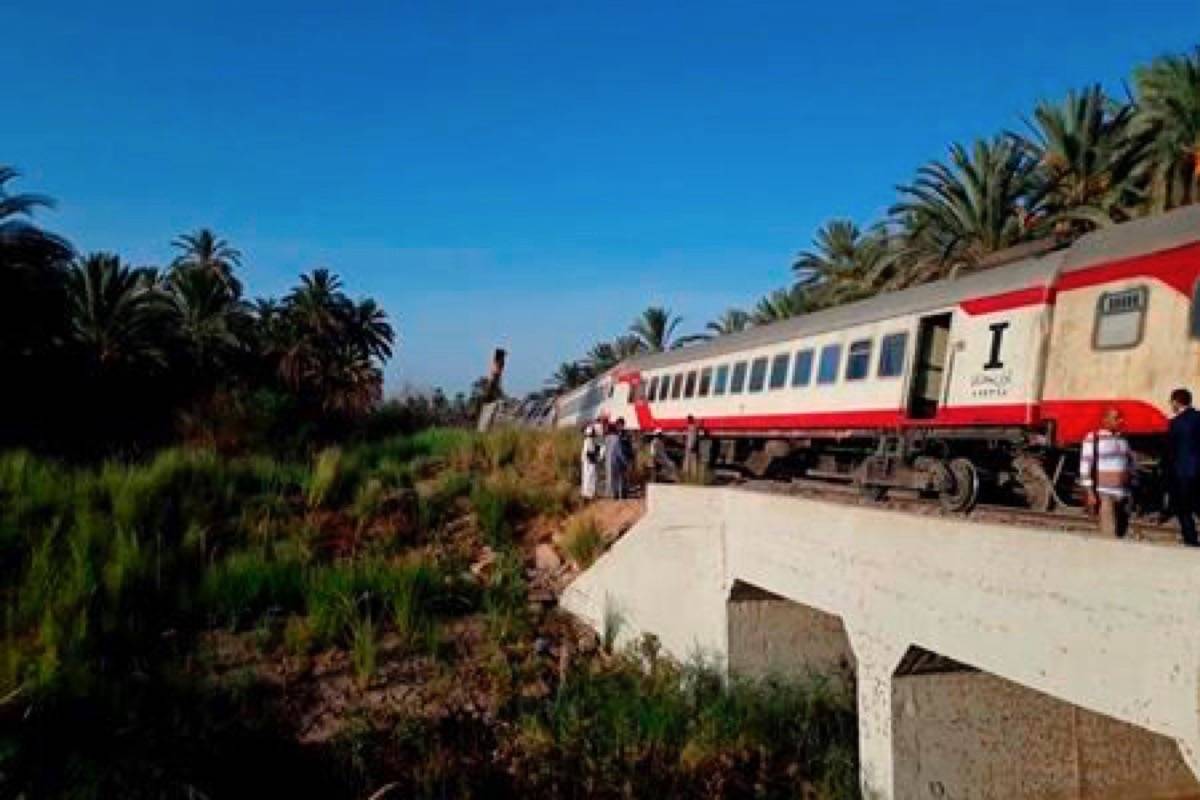An Egyptian passenger train derailed Sunday near the southern city of Aswan, injuring at least six people and prompting authorities to fire the chief of the country’s railways.
It was not clear what caused the derailment, which took place near the Salwa train station in Kom Ombo, north of Aswan, the Transportation Ministry said. Eight of the train’s carriages were derailed and lifting tools, cranes and maintenance teams were dispatched to the site, the ministry added.
Khaled Megahed, spokesman for the Health Ministry, says the injured were taken to hospital.
Hours after the incident, the head of the railways authority, Sayed Salem was fired, according to a statement from Transportation Minister Hesham Arafat who appointed Ashraf Raslan as acting head of the authority.
The accident comes two weeks after another passenger train derailed in Cairo’s twin city of Giza, when at least 55 people were injured.
Egypt’s railway system has a poor safety record, mostly blamed on decades of badly maintained equipment and poor management. Official figures show that 1,793 train accidents took place in 2017.
In March, President Abdel-Fattah el-Sissi said the government lacks about 250 billion Egyptian pounds, or $14.1 billion, to overhaul the run-down railway system. El-Sissi spoke a day after a passenger train collided with a cargo train, killing at least 12 people, including a child.
Last August, two passenger trains collided just outside the Mediterranean port city of Alexandria, killing 43 people. In 2016, at least 51 people were killed when two commuter trains collided near Cairo.
Meanwhile, a bus crash in the Mediterranean city of Port Said on Sunday killed nine people and injured 18 others, Megahed said.
He said the accident happened when the bus collided with a truck on a highway linking Port Said — which is located on city on the northern tip of the Suez Canal — with the capital, Cairo.
Road accidents are common in Egypt due to badly maintained roads and vehicles and poor enforcement of traffic laws.
___
Associated Press writer Samy Magdy contributed to this report from Cairo.
Haggag Salama, The Associated Press



